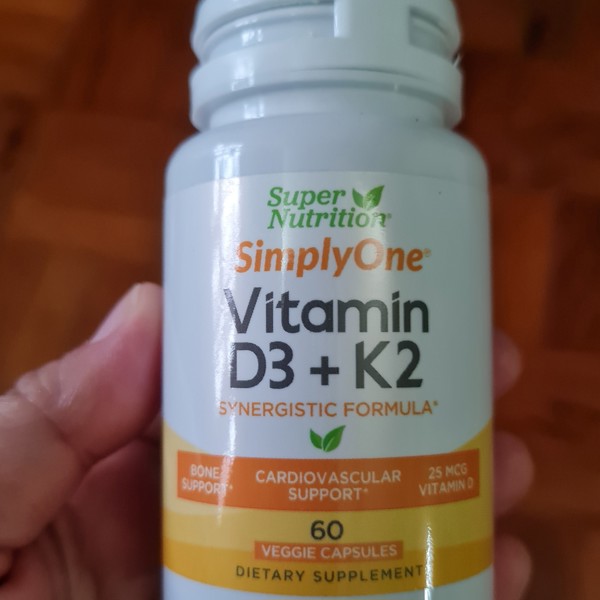Vitamin d3 k2
The Importance of Vitamin D3 and K2
Vitamins play a pivotal role in maintaining overall health and well-being. Among the essential vitamins, vitamin D3 and vitamin K2 have garnered significant attention for their synergistic benefits in supporting various bodily functions. In this article, we will delve into the significance of vitamin D3 and K2, their sources, health benefits, optimal dosage, potential risks, and how combining these two vitamins can boost your overall health.
Understanding Vitamin D3 and K2
Vitamin D3 is a fat-soluble vitamin that is often referred to as the "sunshine vitamin." It is primarily produced in the skin when exposed to sunlight. This vitamin is essential for the absorption of calcium and plays a critical role in maintaining strong and healthy bones. Additionally, it supports the immune system and may have a role in preventing chronic diseases.
Vitamin K2, on the other hand, is essential for proper blood clotting and bone health. It helps in transporting calcium to the bones and teeth, ensuring they remain strong and sturdy. The synergy between vitamin D3 and K2 is in their joint effort to regulate calcium levels in the body.
Sources of Vitamin D3 and K2
Natural Sources of Vitamin D3
Vitamin D3 can be obtained naturally from various sources:
- Sunlight: The most natural and efficient way to get vitamin D3 is through direct exposure to sunlight. Just a few minutes of sunlight on your skin can trigger the synthesis of vitamin D3.
- Food Sources: Fatty fish like salmon, mackerel, and tuna are excellent dietary sources of vitamin D3.
- Supplements: Vitamin D3 supplements are available over the counter and can be taken as per your healthcare provider's recommendations.
Sources of Vitamin K2
Vitamin K2 can be found in specific food sources: 4. Fermented Foods: Natto, a Japanese soybean dish, is one of the richest sources of vitamin K2.
- Meat and Dairy: Animal products, including meat and dairy, can also provide vitamin K2.
Health Benefits of Vitamin D3 and K2
Bone Health and Vitamin D3
Vitamin D3 plays a vital role in maintaining strong and healthy bones. It helps in the absorption of calcium, ensuring that your bones remain dense and less prone to fractures.
Cardiovascular Benefits of Vitamin K2
Vitamin K2 is instrumental in ensuring that calcium is directed towards your bones and teeth, preventing the calcification of arteries. This, in turn, supports cardiovascular health.
Immune System Support
Both vitamin D3 and K2 have immune-boosting properties. Vitamin D3 enhances the immune system's response to infections, while vitamin K2 helps reduce inflammation, contributing to overall immune health.
Optimal Dosage and Supplementation
Recommended Daily Intake
The recommended daily intake of vitamin D3 and K2 may vary depending on factors such as age, sex, and individual health status. It is advisable to consult with a healthcare professional for personalized guidance.
Vitamin D3 and K2 Supplements
Supplements are a convenient way to ensure you're getting adequate amounts of these vitamins. However, it's essential to take them under the guidance of a healthcare professional to prevent any risks of overdose.
Combining D3 and K2 for Maximum Effect
Many health experts recommend taking vitamin D3 and K2 together as they complement each other in calcium regulation. This combination can have a synergistic effect on your overall health.
Potential Risks and Side Effects
Vitamin D3 and K2 Overdose
While both vitamins are crucial for health, excessive intake can lead to adverse effects. It's important to follow recommended dosages and seek professional advice.
Allergic Reactions and Interactions
In some cases, individuals may experience allergic reactions or interactions with medications, emphasizing the need for medical supervision when taking supplements.
Conclusion
In conclusion, vitamin D3 and K2 are indispensable for maintaining optimal health. Their roles in bone health, cardiovascular support, and immune system enhancement make them a dynamic duo in the realm of vitamins. Whether obtained through natural sources or supplements, these vitamins can significantly impact your well-being.
FAQs
1. Can I get enough vitamin D3 from sunlight alone?
Getting some sunlight exposure is an excellent way to obtain vitamin D3, but factors like geographical location, skin type, and sunscreen use can affect its synthesis. Therefore, dietary sources and supplements may be necessary.
2. What are the best dietary sources of vitamin K2?
Fermented foods like natto and animal products, including meat and dairy, are rich in vitamin K2.
3. Are there any risks associated with vitamin D3 and K2 supplementation?
Excessive intake of these vitamins can lead to adverse effects. It's crucial to follow recommended dosages and consult a healthcare professional.
4. Can I take vitamin D3 and K2 supplements together?
Yes, many health experts recommend taking these supplements together as they have a synergistic effect on calcium regulation and overall health.
5. Is there an ideal time of day to take vitamin D3 and K2 supplements?
The timing of supplementation can vary based on individual preferences and lifestyles. It's generally recommended to take them with a meal for better absorption.

Comments
Post a Comment